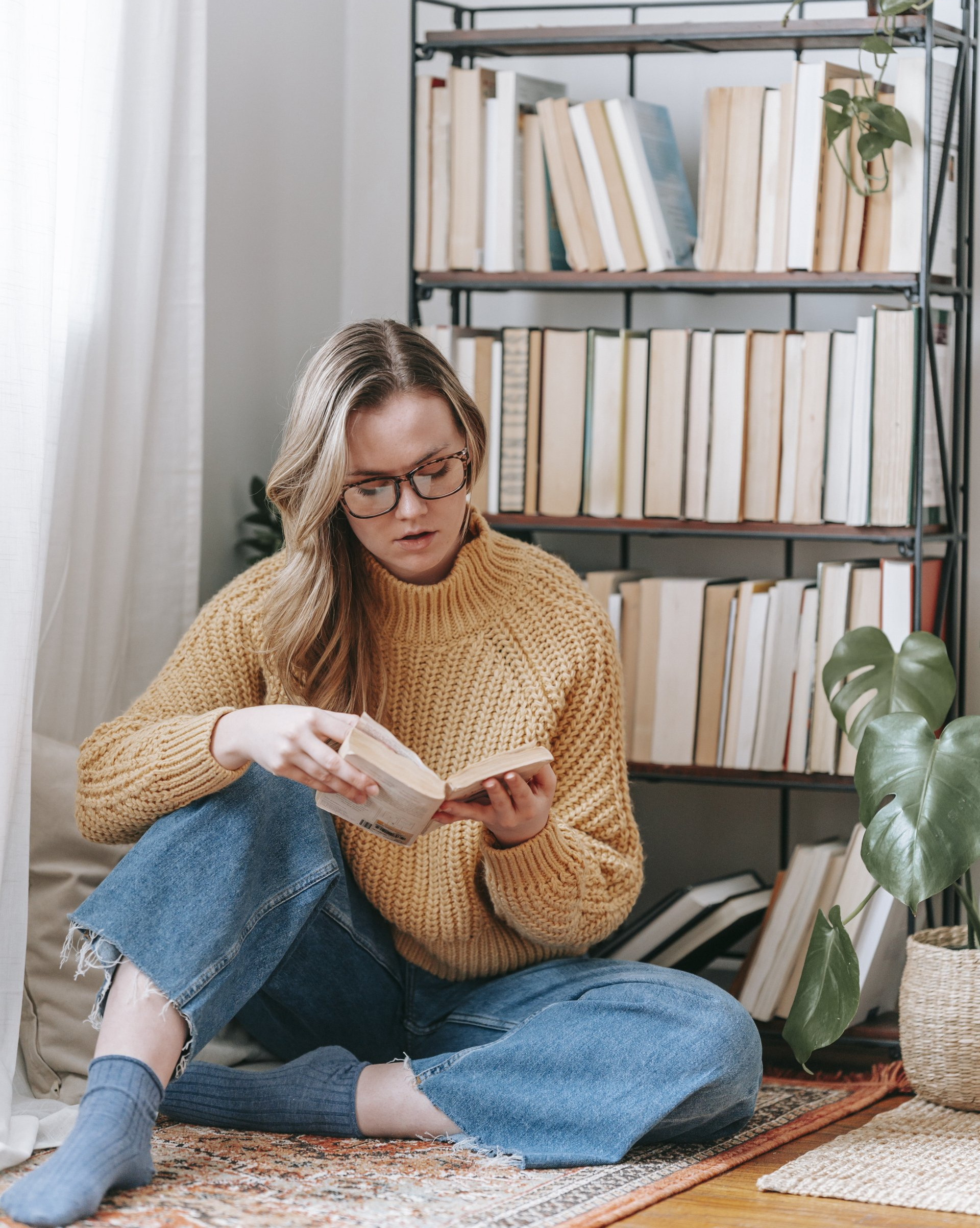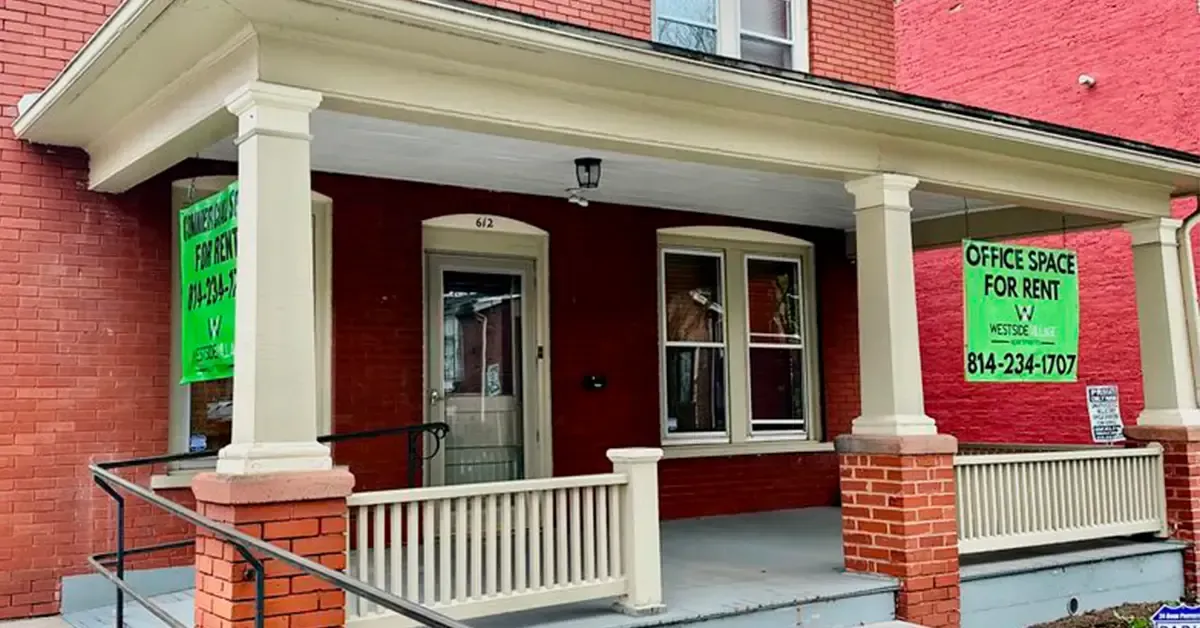First Apartment Checklist: An Essential Guide for Renters

Moving into your first apartment is a thrilling milestone, brimming with anticipation, independence, and the promise of newfound freedom. Whether you're stepping into your own space for the first time or transitioning from dorm life to a more autonomous off-campus setting, the journey ahead is both exhilarating and filled with its own unique set of challenges.
Yet, amidst the excitement that comes with renting your first apartment, it's essential to acknowledge the practicalities that come hand in hand with this newfound independence. From furnishing your living room to stocking your kitchen, the list of essentials can seem daunting.
To help guide you as you make this transition, we’ve created a checklist that covers everything you’ll need to take into account as you prepare for your move.
This checklist isn't just a mundane list of items; it's your roadmap to success, your lifeline amidst the chaos of moving boxes and bubble wrap. Let's dive into the world of apartment living and discover the essentials that will transform your space into a home.
Understanding Your Needs: The Essentials for Every Apartment
As you begin to plan out what you will need for your first apartment, it's essential to approach the task with clarity and organization. One effective way to tackle this is by breaking down your checklist into categories based on room functionality. By doing so, you ensure that no corner of your new home is overlooked, and every aspect of your daily life is adequately catered for.
In the upcoming sections of this blog, we will delve into the specifics of outfitting your apartment with the essentials for each key area: the bedroom, kitchen, bathroom, living room, and even cleaning supplies. From cozy comforters to essential cooking utensils, we'll guide you through the must-have items that will transform your apartment into a functional and inviting space.
As you work through this checklist, it’s important to distinguish between “needs” and “wants.” While it's tempting to indulge in expensive decor or gadgets, prioritizing your needs ensures that you allocate your resources wisely, both in terms of budgeting and space utilization. By focusing on the essentials first, you lay a solid foundation for your apartment living experience, allowing room for personalization and enhancement down the line.
Bedroom Essentials
Here's a list of bedroom essentials to ensure a comfortable and functional sleeping space in your first apartment:
- Bed Frame and Mattress: Since this is the foundation of your bedroom setup, make sure to choose a sturdy bed frame that fits your style and budget. Pair it with a comfortable mattress that suits your sleeping preferences.
- Bedding: Invest in quality bedding for a restful night's sleep. This includes a fitted sheet, flat sheet, comforter or duvet, and pillowcases. Opt for soft, breathable materials like cotton or linen for maximum comfort.
- Pillows: Select pillows that provide adequate support for your head and neck.
- Storage Solutions: Maximize space in your bedroom with storage solutions such as a dresser, wardrobe, or closet organizer. Keep your clothing and personal items neatly organized to create a clutter-free environment.
- Nightstands: Place a nightstand or bedside table next to your bed for convenient storage and easy access to essentials like a lamp, phone charger, or nighttime reading material.
- Lighting: Illuminate your bedroom with ambient lighting to create a cozy atmosphere. Consider incorporating a combination of overhead lighting, bedside lamps, or wall sconces for versatility.
- Window Treatments: Enhance privacy and control natural light with window treatments such as curtains, blinds, or shades. Choose options that complement your decor and provide your desired level of light filtration.
- Mirror: Add a mirror to your bedroom for practical purposes like getting dressed or grooming.
- Decorative Accents: Personalize your bedroom with decorative accents such as wall art, throw pillows, rugs, or plants. These elements add personality and warmth to your space, making it feel like home.
- Laundry Hamper: Keep your bedroom tidy by incorporating a laundry hamper or basket for collecting dirty clothes.
By including these essential items in your bedroom setup, you'll create a cozy and inviting space where you can relax and unwind after a long day.
Kitchen Essentials Checklist
Here's a list of kitchen essentials to help you cook up delicious meals and keep your space organized:
- Cookware Set: Invest in a versatile cookware set that includes pots and pans of various sizes. Look for durable materials like stainless steel or non-stick coatings for easy cooking and cleaning.
- Utensils: Stock your kitchen with essential utensils such as spatulas, wooden spoons, ladles, tongs, and a whisk. These tools are indispensable for cooking and food preparation tasks.
- Cutlery Set: Ensure you have a set of quality knives for slicing, dicing, and chopping ingredients. A basic cutlery set typically includes a chef's knife, paring knife, serrated knife, and utility knife.
- Cutting Board: Protect your countertops and maintain knife sharpness with a durable cutting board. Choose a material like wood or plastic that is easy to clean and won't dull your knives.
- Mixing Bowls: Have a set of mixing bowls in various sizes for combining ingredients, marinating meats, or serving salads. Stainless steel or glass bowls are durable and dishwasher safe.
- Measuring Tools: Ensure accuracy in your recipes with measuring cups and spoons for both liquid and dry ingredients. A kitchen scale is also handy for precise measurements, especially for baking.
- Basic Appliances: Equip your kitchen with essential appliances such as a microwave, toaster or toaster oven, and coffee maker or kettle. These appliances streamline meal preparation and add convenience to your daily routine.
- Food Storage Containers: Keep leftovers fresh and organize pantry staples with a collection of food storage containers. Opt for stackable containers with tight-fitting lids for easy storage and transport.
- Kitchen Linens: Stock up on kitchen linens such as dish towels, dishcloths, and oven mitts to handle hot dishes and wipe up spills. These items are essential for maintaining cleanliness and safety in the kitchen.
- Basic Kitchen Gadgets: Equip your kitchen with handy gadgets that make meal preparation easier and more efficient. Consider items such as a can opener, vegetable peeler, kitchen scissors, colander, and a grater.
By equipping your kitchen with these essential items, you'll have everything you need to prepare meals with ease and keep your space organized and functional.
Bathroom Basics for Your First Apartment
Here's a list of bathroom essentials to help you create a functional and organized space:
- Towels: Stock your bathroom with a set of bath towels, hand towels, and washcloths for personal hygiene and drying off after showers or baths.
- Shower Curtain or Door: Ensure privacy and prevent water splashes with a shower curtain or a glass shower door. Choose a design that complements your bathroom decor and provides easy access to the shower or bathtub.
- Toiletries: Keep your bathroom stocked with essential toiletries such as shampoo, conditioner, body wash or soap, and toilet paper. Consider personal preferences and any specific skincare or grooming products you use regularly.
- Storage Solutions: Maximize space in your bathroom with storage solutions such as a medicine cabinet, vanity drawers, or wall-mounted shelves. Organize toiletries, cleaning supplies, and personal care items to keep your space clutter-free.
- Towel Rack or Hooks: Hang towels and bathrobes on a towel rack or hooks to keep them dry and within reach. Install multiple hooks or racks to accommodate household members or guests.
- Trash Can: Place a small trash can in the bathroom for disposing of used tissues, empty toiletry containers, and other waste. Empty the trash regularly to maintain cleanliness and hygiene.
- Plunger and Toilet Brush: Be prepared for common bathroom maintenance tasks with a plunger to unclog drains and a toilet brush for cleaning the toilet bowl. Store these items in a discreet location near the toilet.
By including these essential items in your bathroom setup, you'll create a comfortable and functional space for personal hygiene and relaxation.
Essential Cleaning Supplies for a College Apartment
Here's a list of essential cleaning supplies to help you maintain a clean and hygienic living space in your college apartment:
- All-Purpose Cleaner: A versatile cleaning solution that can be used on various surfaces such as countertops, tables, and appliances.
- Disinfecting Wipes: Convenient for quick cleanups and sanitizing frequently touched surfaces like doorknobs, light switches, and remote controls.
- Glass Cleaner: Keep windows, mirrors, and glass surfaces sparkling clean with a glass cleaner and lint-free cloth or paper towels.
- Bathroom Cleaner: Specifically formulated to tackle soap scum, hard water stains, and mildew in the bathroom. Choose a cleaner suitable for surfaces like tiles, sinks, and shower stalls.
- Toilet Bowl Cleaner: Effectively cleans and disinfects the toilet bowl to remove stains and prevent the buildup of bacteria and odors.
- Sponges and Scrub Brushes: Use sponges or scrub brushes for scrubbing surfaces and removing stubborn stains. Replace sponges regularly to prevent bacteria buildup.
- Microfiber Cloths: Ideal for dusting, wiping down surfaces, and polishing without leaving streaks or lint behind.
- Broom and Dustpan: Essential for sweeping floors and collecting dust and debris. Consider a dustpan with a long handle for easier cleanup.
- Vacuum Cleaner: Keep floors clean and free of dirt, dust, and pet hair with a vacuum cleaner suitable for your apartment's flooring type.
- Trash Bags: Ensure you have an ample supply of trash bags for disposing of garbage and recyclables. Choose bags that fit your trash can size and are durable enough to prevent leaks.
- Gloves: Protect your hands while cleaning with a pair of rubber gloves. Choose gloves that are comfortable to wear and provide adequate grip.
- Laundry Detergent: Keep your clothes clean and fresh with a suitable laundry detergent for your washing machine. Consider options for both regular and sensitive skin types.
- Stain Remover: Treat stains on clothing, upholstery, and carpets with a stain remover to prevent permanent discoloration.
- Air Freshener or Odor Eliminator: Keep your apartment smelling fresh and inviting with an air freshener or odor eliminator. Choose a scent you enjoy or opt for odor-neutralizing products.
By keeping these essential cleaning supplies on hand, you'll be equipped to tackle any mess or spill and maintain a clean and healthy living environment in your college apartment.
Living Room Furnishings for Your First Apartment
Here's a list of essential living room furnishings to help you create a comfortable and inviting space in your first apartment:
- Sofa or Couch: Choose a comfortable sofa or couch as the focal point of your living room. Consider the size of your space and opt for a style and color that complements your decor.
- Coffee Table: Place a coffee table in front of your sofa to provide a surface for drinks, snacks, and decorative accents. Look for a sturdy table with storage options like drawers or shelves for added functionality.
- End Tables: Add end tables or side tables next to your sofa or armchairs to hold lamps, remote controls, and other essentials. Opt for tables with built-in storage or sleek designs to maximize space.
- Lighting: Illuminate your living room with a combination of overhead lighting, floor lamps, and table lamps.
- Television Stand: Organize your entertainment setup with a television stand or media console. Select a piece with ample storage for things like gaming consoles.
- Throw Pillows and Blankets: Add comfort and style to your seating area with decorative throw pillows and cozy blankets.
- Accent Chairs: Incorporate additional seating with accent chairs or recliners. Select chairs that complement your sofa and provide comfortable seating options for guests.
By including these essential living room furnishings in your apartment setup, you'll create a cozy and functional space where you can relax, entertain, and enjoy quality time with friends and family.
Organizational Tips to Prepare for Move-In Day
Moving into your first apartment is an exciting milestone, but it can also be overwhelming without proper planning and organization. Follow these tips to ensure a smooth and stress-free move-in day:
- Create a Timeline for Your Move: Outline a timeline leading up to your move-in day, including tasks such as packing, scheduling movers or renting a truck, and notifying utility companies of your move.
- Inventory and Label Boxes: Keep track of your belongings by inventorying and labeling boxes as you pack. Clearly label each box with its contents and the room it belongs to, making unpacking a breeze.
- Prioritize Unpacking: Identify essential items that you'll need immediately upon moving in, such as toiletries, bedding, and kitchen essentials. Pack these items separately and prioritize unpacking them first.
- Set Up Essential Services: Arrange for essential services such as electricity, water, internet, and cable to be set up before move-in day. Confirm activation dates and ensure utilities are transferred to your name.
- Plan Your Layout in Advance: Visualize the layout of your apartment and plan where furniture and belongings will go. Measure doorways and hallways to ensure large items can be maneuvered into place without difficulty.
- Unpack One Room at a Time: Focus on unpacking one room at a time to maintain organization and prevent overwhelm. Start with high-traffic areas like the kitchen and bathroom before moving on to bedrooms and living spaces.
- Organize as You Unpack: As you unpack, take the opportunity to declutter and organize belongings. Use storage solutions such as bins, baskets, and shelves to maximize space and keep items tidy.
By following these organizational tips, you'll be well-prepared for move-in day and can transition smoothly into your new apartment. Remember to take breaks and ask for help when needed, and don't forget to celebrate this exciting milestone in your journey!
Still Looking for Your First Apartment?
Browse our available apartments in State College and find the perfect place for you!
Budgeting for Your First Apartment
Moving into your first apartment comes with newfound freedom and independence, but it also requires careful financial planning to ensure a smooth transition. Here's how to budget effectively for your new living space:
- Assess Your Finances: Before making any purchases or signing a lease, assess your financial situation. Determine your monthly income and expenses to establish a realistic budget for rent, utilities, groceries, and other essentials.
- Create a Budget Plan: Develop a comprehensive budget plan that outlines your anticipated monthly expenses and income. Allocate funds for rent, utilities, groceries, transportation, entertainment, and savings. Use budgeting tools or apps to track your spending and stay within your budget.
- Prioritize Essential Purchases: Identify essential items that you'll need for your apartment, such as furniture, kitchenware, and household supplies. Prioritize purchases based on necessity and budget constraints, focusing on essential items first before considering non-essential purchases.
- Shop Smart: Stretch your budget further by shopping smart and looking for deals, discounts, and secondhand options. Compare prices, read reviews, and take advantage of sales and promotions to get the best value for your money.
- Consider Long-Term Costs: Factor in long-term costs such as rent increases, utility bills, and maintenance expenses when budgeting for your apartment. Plan for unexpected expenses by setting aside funds in an emergency savings account.
Breakdown of Monthly Expenses:
- Rent: Your largest monthly expense, typically due at the beginning of each month. Budget accordingly to ensure you can afford rent without stretching your finances.
- Utilities: Includes electricity, water, gas, and internet/cable services. Estimate monthly utility costs based on previous usage or inquire with the landlord or utility providers for an average estimate.
- Groceries: Budget for food and household essentials such as toiletries, cleaning supplies, and pet food. Meal planning and shopping for groceries in bulk can help save money on food expenses.
- Transportation: Includes expenses for gas, public transportation, and vehicle maintenance. Budget for commuting costs based on your transportation needs and distance to work or school.
- Insurance: Consider renters' insurance to protect your belongings in case of theft, fire, or natural disasters. Research insurance options and include the cost in your monthly budget.
- Savings: Allocate a portion of your income toward savings goals, such as an emergency fund, retirement savings, or future purchases. Pay yourself first by automating savings contributions each month.
- Entertainment: Budget for discretionary expenses such as dining out, entertainment, and leisure activities. Set aside funds for socializing and recreation while staying within your budget limits.
By following these budgeting tips and prioritizing essential purchases, you'll be well-prepared to manage your finances and enjoy your first apartment without breaking the bank.
Apartment Hunting Checklist
Searching for the perfect apartment can be both exciting and daunting. To help you navigate the process, follow these tips and considerations:
- Determine Your Budget: Before you start apartment hunting, establish a budget that includes rent, utilities, and other expenses. Aim to spend no more than 30% of your monthly income on rent to ensure affordability.
- Define Your Priorities: Make a list of must-have features and amenities for your ideal apartment. Consider factors such as location, apartment size, pet-friendliness, parking availability, and proximity to public transportation or amenities like grocery stores and restaurants.
- Research Neighborhoods: Explore different neighborhoods to find the right fit for your lifestyle and preferences. Consider factors such as safety, walkability, nearby attractions, and commute times to work or school.
- Schedule Viewings: Once you've identified potential apartments, schedule viewings to see them in person. Take note of the apartment's condition, layout, natural light, noise levels, and overall feel.
- Ask Questions: Don't hesitate to ask the landlord or property manager questions about the apartment, building amenities, lease terms, and maintenance policies. Clarify any concerns or uncertainties before making a decision.
- Check Reviews: Research online reviews and ratings for the apartment complex or landlord to get insights from current or past tenants. Pay attention to recurring issues or complaints that may affect your living experience.
- Read the Lease Carefully: Review the lease agreement thoroughly before signing to understand your rights, responsibilities, and any potential fees or restrictions. Seek clarification on any terms or conditions that are unclear.
- Consider Roommates: If you're planning to live with roommates, discuss expectations and preferences upfront to ensure compatibility. Agree on rent division, chore responsibilities, and house rules to foster a harmonious living environment.
- Evaluate Amenities: Assess the amenities offered by the apartment complex, such as laundry facilities, fitness centers, swimming pools, or communal spaces. Determine which amenities are important to you and factor them into your decision.
- Trust Your Instincts: Trust your instincts and intuition when choosing an apartment. Consider how you feel when visiting the apartment and interacting with the landlord or property manager. If something doesn't feel right, explore other options.
By following these tips and using the apartment hunting checklist, you'll be well-equipped to find the perfect apartment that meets your needs and preferences.
College Apartment Specifics in State College, PA
Moving into your first apartment in State College, PA, as a student comes with its own set of considerations and unique neighborhoods to explore. Here's what you need to know:
Finding the Right Neighborhood in State College, PA
When it comes to choosing the perfect neighborhood for your first apartment in State College, PA, it's important to consider your lifestyle and interests. Each area offers its own unique charm and amenities, catering to a diverse range of preferences. Here are a few popular areas for students or people looking for their first apartment:
- Downtown Offers Proximity to Campus and Nightlife: If you're a student looking to immerse yourself in the vibrant energy of Penn State's campus and enjoy easy access to bars, restaurants, and nightlife, Downtown State College is the place to be. Living downtown means being at the heart of the action, with a bustling atmosphere and a wide array of entertainment options right at your doorstep.
- Waupelani Drive Offers Balanced Lifestyle and Convenience: For those seeking a balance between tranquility and convenience, Waupelani Drive offers the best of both worlds. Situated just a short distance from Penn State’s campus, this neighborhood provides easy commuting while maintaining a peaceful ambiance. With a variety of dining and nightlife options nearby, Waupelani Drive promises a convenient and comfortable living experience.
- The Highlands Offers Greek Life and Community Atmosphere: If you're interested in Greek life and community-oriented living, The Highlands provides a welcoming environment where Greek fraternities coexist with a blend of permanent residents and students. This neighborhood offers a tight-knit community atmosphere and easy access to campus amenities, making it an ideal choice for those looking to immerse themselves in campus culture.
Apartment Costs in State College
The cost of apartments in State College varies based on factors like location, size, and amenities. On average, you can expect to pay around $2,000 for an apartment in the area. If you're renting with friends, splitting the cost can range from $500 to $700 per person. Keep in mind that prices can vary widely depending on the type of unit and additional features.
When searching for apartments in State College, explore listings to get a better understanding of pricing and availability. Whether you're looking for a budget-friendly option or a luxury apartment, State College offers a range of choices to suit your needs and preferences.
Rental House Information - FAQs & More
What are the advantages of renting a house over an apartment in State College, PA?
Renting a house often provides more space, privacy and flexibility compared to renting an apartment. You typically get a private yard, more storage space, and fewer shared walls, making it ideal for families, groups of students or anyone looking for more independence. Houses also tend to be in quieter residential neighborhoods.
What is typically included in the rent for a house in State College?
The inclusions in rent can vary widely depending on the property and landlord. Generally, rent for a house might cover the cost of the property itself, but utilities (electricity, water, gas, trash removal) are often the tenant’s responsibility. Some landlords may include certain utilities or services like lawn care or snow removal, so it’s important to clarify what’s covered in your lease.
Is it more expensive to rent a house in State College compared to an apartment?
Renting a house is usually more expensive than renting an apartment, primarily due to the larger space, added privacy and additional amenities such as yards or garages. The cost can be more economical if shared among multiple tenants, such as a group of students.
Can I make changes or renovations to a rental house?
Most landlords require approval for any modifications or renovations to the property. This could include painting walls, installing fixtures, or making structural changes. It’s crucial to get any permissions in writing to avoid potential issues when moving out.
How do I handle maintenance issues when renting a house?
For most maintenance issues, you will need to contact the landlord or property management company. The lease agreement should specify who is responsible for certain types of maintenance. Emergency repairs, like a broken heater in winter, typically require prompt attention from the landlord.
Is subleasing allowed for rental houses in State College?
Subleasing policies vary by landlord. Some landlords may allow subleasing with prior approval, while others may prohibit it entirely. If subleasing is permitted, you’ll need to follow the procedures outlined in your lease agreement, including ensuring the subtenant is approved by the landlord.
Is parking available when renting a house in State College, PA?
Yes, parking is typically available when renting a house in State College, but the specifics can vary depending on the property. Many rental houses offer off-street parking, which might include a driveway, garage or designated parking spaces. The number of spaces may be limited, so it's essential to confirm with the landlord how many vehicles are allowed and whether there are any additional parking fees. If you need additional parking, check out our guide to parking around State College.





